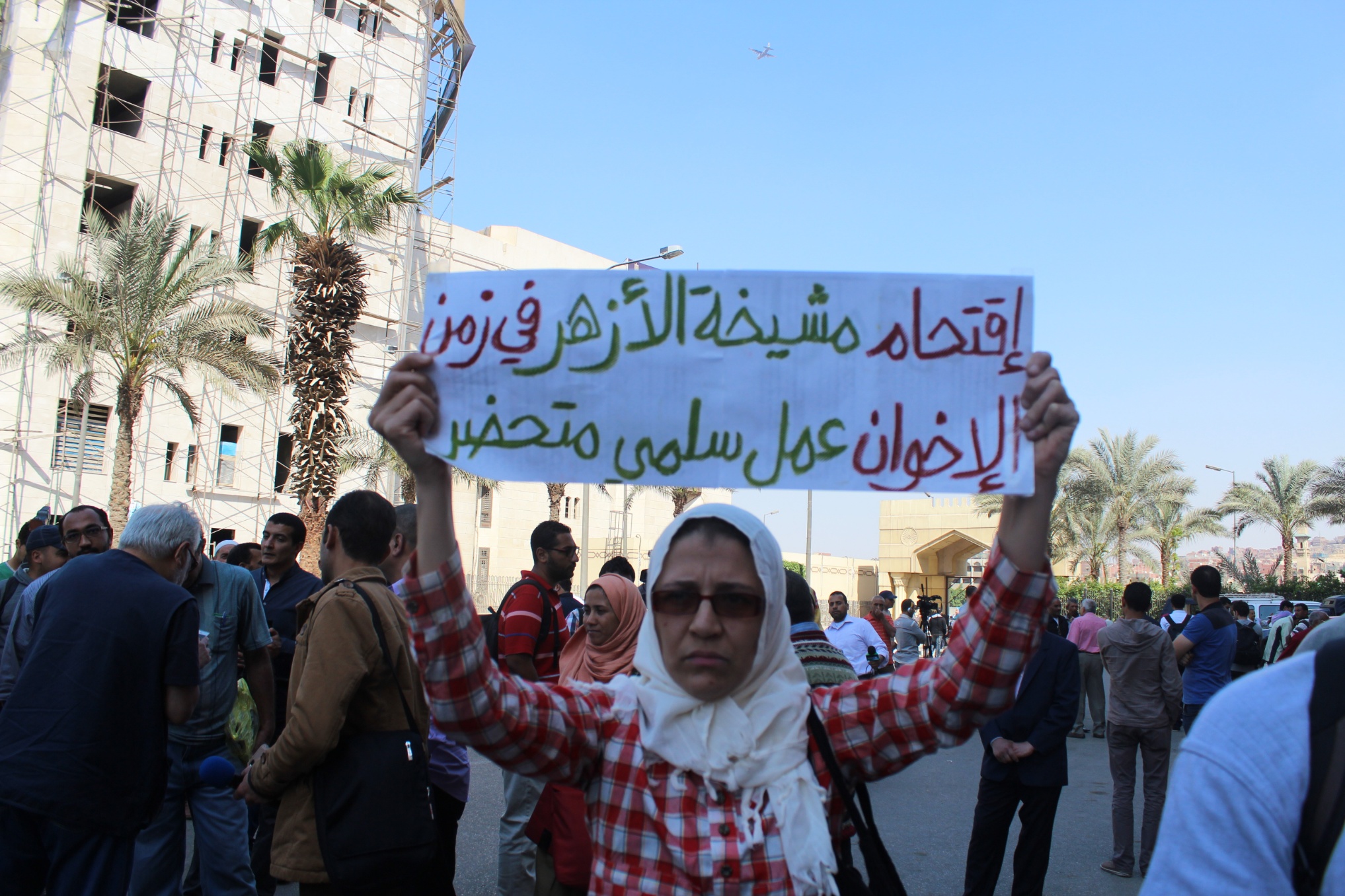I think it’s an appropriate time to ask: How many Egyptians actually belong to the Muslim Brotherhood?
For decades, this question has been a part of the discussion over the size and weight of the Muslim Brotherhood, but no clear answer has ever been reached. As an outlawed organization, the Brotherhood’s leadership understandably declines to answer organizational questions related to numbers, geographical networks, local chapters and more. They think that there are “security motives behind such meticulous questions, even if they are posed by journalists or political analysts.
The Muslim Brotherhood, pundits claim, is a well-organized political group with a magical ability to mobilize its adherents. This was easily noticeable during demonstrations, the funerals of its supreme guides and elections. To keep their organization intact, Brotherhood leaders must undoubtedly know how many followers are on hand.
During the last municipal elections and the nationwide strike on April 6, the group called on their followers not to participate. But its call had no effect.
As usual, there was a low turnout in elections, but the strike was supported by a large number of people. On the May 4 strike, the Brotherhood asked their followers to participate by staying home, but their call, once again, had no effect on the ground.
So it’s legitimate to ask how many people listen to the Muslim Brotherhood and act accordingly?
Islamists always say that they dominate the street. The government and other political forces are trapped in this exaggerated image and often overreact towards political Islam. As a political writer, I get confused. Are Islamists strong or not? Are they great or limited in number? And if they’re weak, why does the government fear them? If they are strong, why has their influence not impacted the public on many political occasions?
In my experience, the Muslim Brotherhood usually prefers to exaggerate its presence, and surrounds itself with ambiguity. In the last Journalists Syndicate elections, as a candidate I was openly supported by Islamists, particularly Muslim Brotherhood ones. But I still failed to discover how many journalists belong to the group. One Islamist journalist who spoke on condition of anonymity told me that the Muslim Brotherhood prefers to appear stronger than it is to have leverage in political negotiations and be able to make deals during elections.
In the Journalists Syndicate, their number probably doesn’t exceed 150 out of 5,000 journalists, but as a shrewd political group, it gives an impression that their numbers are closer to 500.
Many analysts believe the government seems to know that the Muslim Brotherhood is not that strong, but it continues to feed peoples’ fear of it in order to restrict the choice of secularists, Copts, leftists and liberals to the current political regime. Having some say, no matter how little, is better than nothing. This is the prevailing belief of the lethargic opposition forces on the political scene, which are still stuck by the fear of the exaggerated Islamic dragon.
To make political life more dynamic, we need to know the “weight of each political faction. I believe that Egyptians are not politicized in general. They may have strong religious sentiments, but this doesn’t mean that they belong to any Islamic group.
Muslim Brotherhood members know how to approach the street and provide needed services to a large number of people. Most of their supporters don’t know what the ideology of the Muslim Brotherhood is, but they believe that its members are religious people. Thus it is not convincing to claim that ordinary people strictly follow the Brotherhood.
If they had, then why didn’t they support them on May 4?
This question is serious and urgent. As a political commentator, I don’t want to overestimate or underestimate the organizational and human capabilities of the group. The group must tell us how many people belong to it, and how many people blindly obey its orders? If their leaders agree to answer this question, this would be a very significant step.
Most importantly, the Muslim Brotherhood must acknowledge that it is only one political faction among others competing for power, claiming no superior position nor overriding capacity. Hence, political life will rely on facts rather than myths.
Sameh Fawzy is an Egyptian journalist, PhD researcher, and specialist on governance and citizenship.


